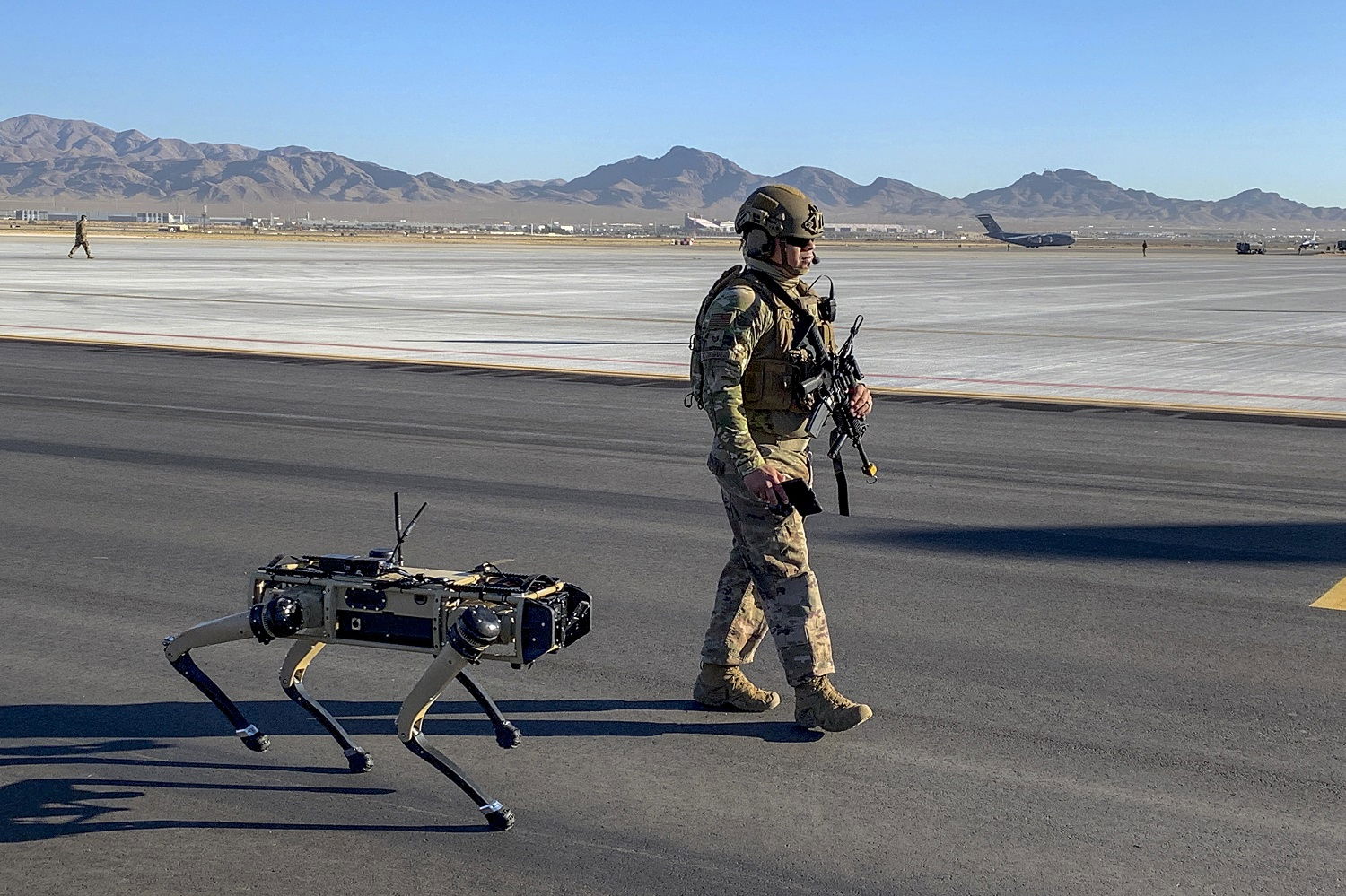AI and the security industry

The utilization of Artificial Intelligence (AI) in military contexts has observed a significant acceleration, offering substantial support to the United States warfighters in their missions. The advent of generative AI has democratized access to sophisticated AI technologies, necessitating the U.S. military's adaptation to maintain a strategic advantage. The dominance in military capabilities is increasingly being defined not by the numerical strength of an army but by the efficacy of its algorithms.

This shift underscores the importance of examining the current and future applications of AI in military operations. Artificial Intelligence, characterized by the development of computer systems capable of performing tasks necessitating human intelligence, such as visual perception, speech recognition, decision-making, and language translation, has demonstrated its utility across various sectors, including the military.
Recent advancements, particularly in natural language processing, computer vision, and autonomous systems, present new opportunities for enhancing military operations. The benefits of AI in the military are manifold, encompassing warfare systems, strategic decision-making, data processing, combat simulation, target recognition, threat monitoring, drone swarms, cybersecurity, transportation, and casualty care. These applications aim to augment efficiency, mitigate human error, and bolster strategic and tactical decision-making processes.

Recent developments in AI, notably the public availability of generative AI and the progress in large language models (LLMs) like GPT-3, have facilitated more nuanced human-AI interactions. The emergence of multimodal AI, capable of processing diverse inputs such as text, images, audio, and video, expands the scope of AI's military applications. However, the potential misuse of these technologies, for instance in phishing schemes, presents security challenges that necessitate vigilant countermeasures.
Specific applications of AI in the military domain include:
- Warfare Systems: Enhancing weapons, sensors, navigation, and surveillance systems through AI reduces the need for human intervention and maintenance.
- Drone Swarms: Utilizing swarm intelligence, drones can collectively make decisions, enhancing operational effectiveness.
- Strategic Decision Making: AI aids commanders by processing data from myriad sources, facilitating informed decision-making under duress.
- Data Processing and Research: AI accelerates the analysis of voluminous data, supporting intelligence gathering and strategic planning.
- Combat Simulation and Training: AI-powered simulations offer realistic training scenarios, enhancing preparedness while ensuring safety.
- Target Recognition and Threat Monitoring: AI improves the accuracy of target identification and threat monitoring, augmenting situational awareness.
- Cybersecurity: AI's capability to detect and counter cyber threats safeguards sensitive military systems and information.
- Transportation: AI optimizes logistics, reducing costs and improving operational efficiency.
- Casualty Care and Evacuation: AI supports medical decision-making by providing data-driven recommendations, though human judgment remains indispensable.
The meticulous implementation of AI can significantly enhance various aspects of military operations. Sentient Digital, Inc., specializes in leveraging cutting-edge AI technologies for military purposes, offering tailored solutions to optimize productivity and efficiency. This article encapsulates the transformative potential of AI in the military realm, highlighting the opportunities and challenges presented by these advancing technologies.